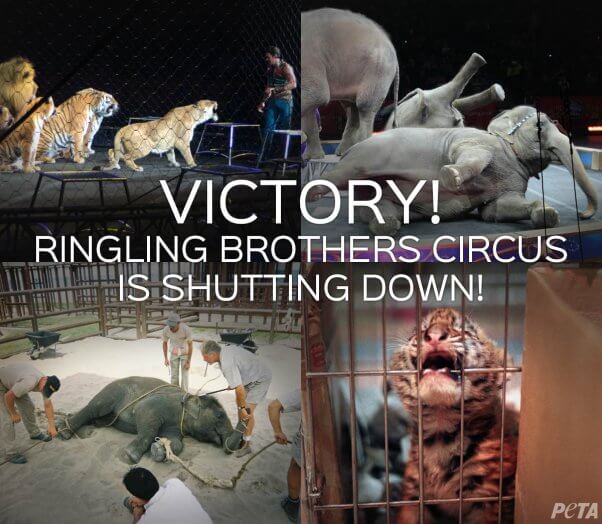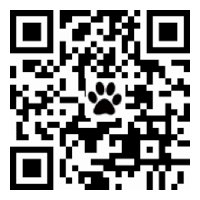http://www.paws.org/get-involved/take-a ... s-cruelty/
Life under the big top is not the "wholesome, fun-loving, educational experience" the circus industry would like you to think it is. For the animals, life is a monotonous and brutal routine of boredom, stress and pain. In short, traveling animal acts perpetuate animal cruelty, inhumane care, public safety hazards and distorted images of wildlife.
Circus animals are confined virtually all of their lives in barren conditions, while forced to suffer extreme physical and psychological deprivation:
Virtually 96 percent of their lives are spent in chains or cages.
11 months a year they travel over long distances in box cars with no climate control; sleeping, eating, and defecating in the same cage.
When allowed out, these animals are trained using extreme "discipline" such as whipping, hitting, poking, and shocking with electrical prods.
Even though the United States Department of Agriculture (USDA) sets minimum standards of care, most itinerary stops are not inspected.
Wild animal acts also pose a significant threat to public health and safety:
Circus elephants may carry tuberculosis (TB), and can infect humans with the bacterial disease. Public records show that many circuses have used TB-positive elephants in public performances.
Circuses are not required by law to carry emergency euthanasia equipment and local law enforcement agencies may be forced to deal with a loose animal.
Since the 1990s circuses have been responsible for over 100 human injuries worldwide.
Read more circus facts
USDA inspection reports on circuses
Attacks on and injuries of humans
Circuses and the law
Conservation or profit?
Circuses such as Ringling Brothers and Barnum & Bailey Circus claim to actively support education and conservation of wild species. A captive life in the circus for elephants consists of shackles measuring as little as five feet in length. In the wild these elephants would have a natural territory covering up to 2,300 square miles. By spotlighting captive breeding programs in North America for animals to be used for entertainment, these circuses do nothing to raise awareness of the wild elephant's largest threat today-human encroachment into elephant territory and loss of habitat.
Sending the wrong message to our children
There was a time when a circus may have represented the only exposure a child had to a wild animal. Today our children learn early in school, and through such programs as on Animal Planet and The Discovery Channel, that wild animals live complex and fascinating lives, and have natural instincts, developed over thousands of years. When kids see the negative messages circuses send, it completely contradicts these lessons.
The circus industry claims that it only trains animals to do the types of tricks they might naturally perform in the wild. In reality, animals live their lives looking for food, sleeping, or raising their babies. Costumed bears lying on their backs spinning giant balls, tigers jumping through flames, or elephants walking on their hind legs then balancing on their heads, are not natural behaviors.
When circuses portray unnatural and inaccurate images of how wild animals live and act, in such an unrealistic context, this creates a greater disconnect between people and wild animals, promoting the notion that it's acceptable, even enjoyable to exploit animals for entertainment. Circuses perpetuate an outdated attitude that wild animals are ours to use at any cost to their welfare-an attitude that PAWS, other animal protection groups, wildlife organizations and zoos work tirelessly to counteract through outreach and education.
How you can help
Support local animal-free circuses:
The Moisture Festival is a family-oriented comedy and vaudeville style festival held each spring in Seattle.
Cirque du Soleil travels nation-wide performing spectacular theme-based shows with magnificent costumes and acrobatics.
Teatro ZinZanni is an elaborate three-hour experience of cirque, comedy and cabaret all served up with a five-course feast.
Born Free USA's national tour locations for animal-free circuses.
Sign up for PAWS' Actionline E-newsletters to receive action alerts about the circus, exotic animals, and other animal welfare issues.
Write letters
When animal circuses do come to town, write letters to newspaper editors and to the sponsors telling them circuses don't need to feature wild animals to be entertaining. Take particular notice of stores who support circuses with free tickets. Ask these stores to stop supporting circuses with animal acts. Visit PAWS' how to write an effective letter page for more tips.
Educate yourself
Read news about lawsuits filed against Ringling Bros.:
Ringling Court Filings, Trial Documents and Exhibits
at Born Free USA
"Federal court will decide fate of elephants soon"
(September 6, 2009)
"Circus Arrives in Las Vegas Amid Controversy"
(June 17, 2009)
"Big Top Could Lose Elephants"
(March 18, 2009)
-
- Advertisement
Circus animal Cruelty-paws.org
3 篇帖子
• 分页: 1 / 1
Re: Circus animal Cruelty-paws.org
some people are so selfish, they exploit other people's pains for entertainment, and yet there are so many other entertainments available
- 0
懶得有理_____難得有你
think unique,be special
think unique,be special
- admin
- Site Admin

- 帖子: 3405
- 注册: 周六 5月 22, 2010 7:54 pm
- 威望: 0
Re: Circus animal Cruelty-paws.org
http://www.peta.org/blog/ringling-bros-its-over/

As of May, the saddest show on earth for wild animals will end. Thirty-six years of PETA protests, of documenting animals left to die, beaten animals, and much more, has reduced attendance to the point of no return.
All other animal circuses, roadside zoos, and wild animal exhibitors, including marine amusement parks like SeaWorld and the Miami Seaquarium, must take note: society has changed, eyes have been opened, people know now who these animals are, and we know it is wrong to capture and exploit them.
Thank you to everyone who has picked up a protest sign, passed out leaflets, written letters, shared videos, called legislators, spoken to family, and been part of this relentless pursuit of freedom for animals. This would not have happened without you.

As of May, the saddest show on earth for wild animals will end. Thirty-six years of PETA protests, of documenting animals left to die, beaten animals, and much more, has reduced attendance to the point of no return.
All other animal circuses, roadside zoos, and wild animal exhibitors, including marine amusement parks like SeaWorld and the Miami Seaquarium, must take note: society has changed, eyes have been opened, people know now who these animals are, and we know it is wrong to capture and exploit them.
Thank you to everyone who has picked up a protest sign, passed out leaflets, written letters, shared videos, called legislators, spoken to family, and been part of this relentless pursuit of freedom for animals. This would not have happened without you.
- 0
懶得有理_____難得有你
think unique,be special
think unique,be special
- admin
- Site Admin

- 帖子: 3405
- 注册: 周六 5月 22, 2010 7:54 pm
- 威望: 0
3 篇帖子
• 分页: 1 / 1
在线用户
正在浏览此论坛的用户:没有注册用户 和 1 位游客

